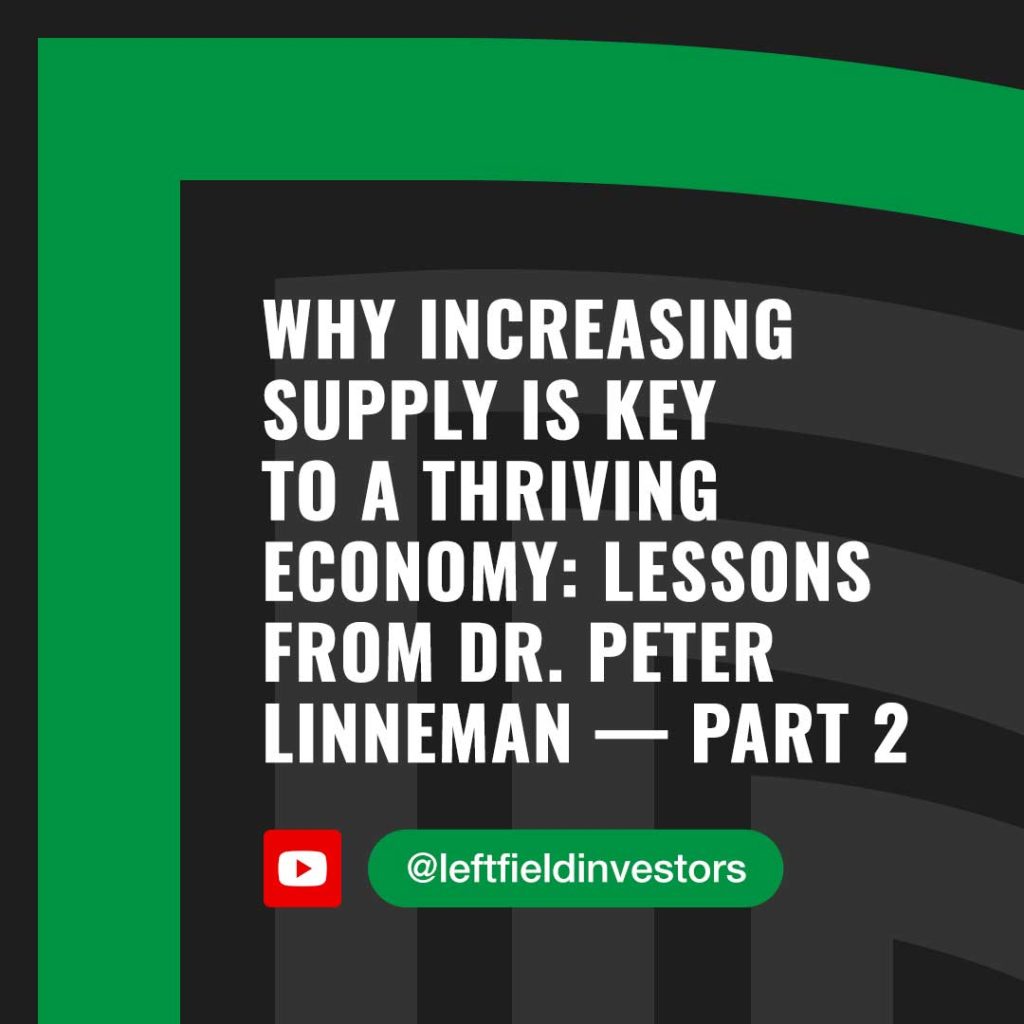Join us for part two of our podcast interview with renowned economist Dr. Peter Linneman, principal of Linneman Associates. Get ready for more valuable insights on topics like the under-supply of single-family housing and its impact on the market, the relationship between high prices, profits, and supply, and what the Federal Reserve is doing about inflation. If you missed part one, be sure to check it out for even more great insights from Peter. Let’s dive in!
About Dr. Peter Linneman
Dr. Peter Linneman holds both master’s and doctorate degrees in economics from the University of Chicago. He is the principal of Linneman Associates. For nearly four decades, he has provided strategic and financial advice to leading corporations through Linneman Associates. He provides M&A, analysis, market studies, feasibility analysis to many leading US international companies. In addition, he serves as an advisor to and a board member of several public and private companies. Peter was a professor of real estate at the Wharton School of Business at the University of Pennsylvania, from 1979 until his retirement in 2011. He’s an accomplished author having written books, articles, and of course, The Linneman Letter, a quarterly letter for commercial real estate investors.
Here are some power takeaways from today’s conversation:
- [02:52] Why the economy is not overheated
- [04:07] The relationship between high prices, profits, and supply
- [05:52] How the pandemic skewered the numbers
- [10:18] How much are rents going up for apartments?
- [15:26] What’s the Fed going to do about inflation?
- [17:05] The importance of gradual interest rate increases
- [19:44] The Impact of Bank Failures
- [29:45] Why the market for
- [39:55] The importance of asking for help
Episode Highlights:
[04:07] The Relationship Between High Prices, Profits, and Supply
Peter explains that high prices encourage suppliers to increase production, which was demonstrated in 2021-2022 when record profits led to more supply and lower prices. Despite this, the Federal Reserve has chosen to suppress demand even though it is below trend, rather than allowing it to increase and spurring more supply. This decision’s long-term implications remain unknown. Instead of reducing demand, the solution to an underperforming economy is to increase supply.
[17:05] The Importance of Gradual Interest Rate Increases
In December 2020, it was clear that interest rates needed to be raised from zero, according to Peter. However, the key was to do so slowly and without rushing. Unfortunately, it took another year and a quarter for the Federal Reserve to initiate the rate increases.
Peter argues that if the Fed had started raising rates gradually earlier, both the markets and the banks could have adjusted accordingly. It is comparable to adjusting to a typhoon versus the same amount of rain spread out over a two-year period. Gradual rate increases would have allowed for a smoother adjustment period instead of sudden shocks to the economic system.
[31:14] The Under Supply of Single Family Housing and Its Impact on the Market
There’s a significant three and a half percent under-supply of single-family housing, which becomes significant when considering the high demand for this type of housing. The shortfall is comparable to a shortage of Toyotas in an economy where only two types of cars exist. This creates an opportunity for multifamily properties to benefit. However, due to NIMBYISM and pent-up demand, this shortfall is unlikely to disappear soon. Therefore, it’s important to address the housing under-supply with innovative solutions to meet market demands.
This show is for entertainment purposes only. Nothing said on the show should be considered financial advice. Before making any decisions, consult a professional. This show is copyrighted by Passive Investing from Left Field and Left Field Investors. Written permissions must be granted before syndication or rebroadcasting.
Resources Mentioned:








